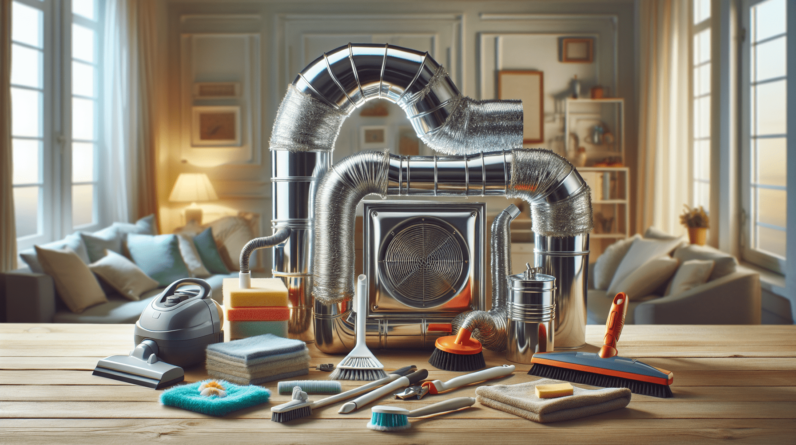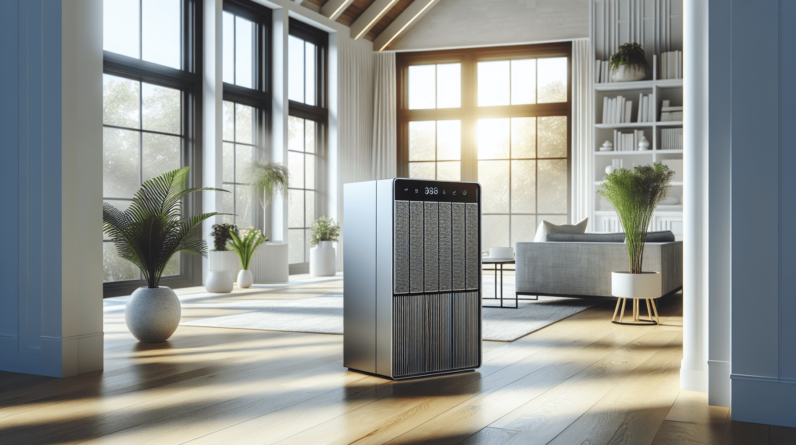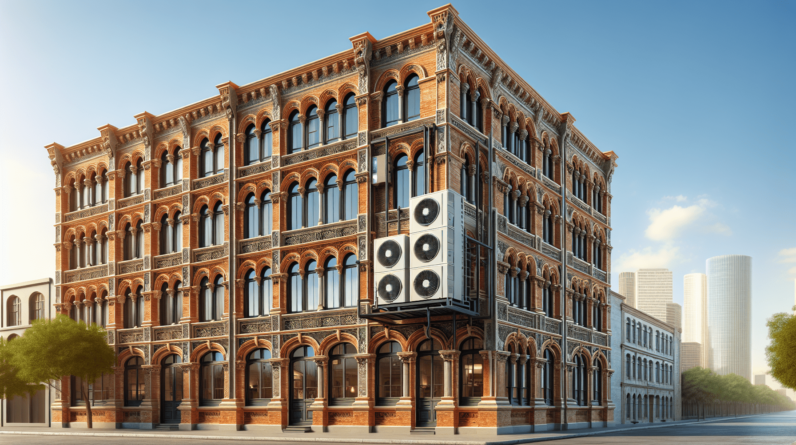
Have you ever found yourself on a camping trip, only to be met with sweltering heat and the uncomfortable realization that you didn’t bring an air conditioner? If you’re someone who enjoys the great outdoors but also appreciates creature comforts, an air conditioner for your camper could be a game changer. Let’s delve into why you might want to consider it and how to make the best choice for your needs.

Why You Need an Air Conditioner for Your Camper
Camping offers a wonderful escape from the chaos of everyday life, but extreme weather conditions can turn a serene getaway into a sticky situation. An air conditioner can significantly enhance your camping experience.
In areas where temperatures soar, a reliable air conditioning unit can provide much-needed relief. It not only cools the air but can also help reduce humidity, creating a more comfortable environment. Imagine relaxing in a cool camper after a long day of hiking or exploring. Sounds appealing, right?
Benefits of Having an Air Conditioner in Your Camper
Let’s take a closer look at the specific benefits of investing in an air conditioner for your camper:
- Comfort: Beat the heat and enjoy a comfortable interior, no matter how high temperatures climb outside.
- Improved Air Quality: An air conditioner can filter dust and allergens, providing cleaner air, especially important for those with respiratory issues.
- Better Sleep: With a cooler and fresher environment, you are likely to enjoy more restful nights, making your camping experience even more enjoyable.
- Extended Camping Season: With air conditioning, you can venture out during the warmer months without concern about the heat, thus broadening your camping opportunities.
Types of Air Conditioners for Campers
When it comes to air conditioning, not all units are created equal. Depending on your needs, your camper type, and your budget, you can choose from several options, each with its own set of benefits and challenges.
Rooftop Air Conditioners
Rooftop air conditioners are commonly found in larger campers and RVs. Installed on the roof, these units are space-saving and effective.
-
Pros:
- Efficient cooling power suitable for larger spaces.
- Typically quieter than some other options.
- Leaves more space inside the camper for other amenities.
-
Cons:
- Can be expensive to install and maintain.
- Requires a professional installation which may add to costs.
Portable Air Conditioners
Portable air conditioners are a versatile option, making them easy to position wherever you need cooling.
-
Pros:
- Easy to install and move around.
- Generally more affordable than rooftop units.
- Can be used in other settings outside of the camper.
-
Cons:
- Often less cooling power compared to rooftop options.
- Takes up valuable floor space within the camper.
Window Air Conditioners
Window air conditioners are designed to fit in an opening in your camper’s window. They provide adequate cooling for smaller spaces.
-
Pros:
- Affordable and readily available.
- Efficient for small to medium-sized campers.
-
Cons:
- Requires a window for installation, which might not be available in every camper.
- Can block outside views and natural light.
Swamp Coolers
Also known as evaporative coolers, swamp coolers utilize water evaporation to cool the air, working best in dry climates.
-
Pros:
- Typically energy-efficient.
- Ideal for arid regions where humidity is low.
-
Cons:
- Less effective in areas with high humidity.
- Requires regular maintenance to ensure water levels are sufficient.
Choosing the Right Air Conditioner for Your Camper
Selecting the perfect air conditioner for your camper requires careful consideration of several factors. Let’s break it down to make the process easier for you.
Size of Your Camper
The size of your camper is one of the most significant factors in determining which air conditioner will work best. A unit that’s too small won’t cool effectively, while one that’s too large may cycle on and off, wasting energy and failing to maintain a consistent temperature.
- Tip: Measure your camper’s interior cubic footage to find an air conditioner that fits your space.
Energy Efficiency
The efficiency of your air conditioner is crucial, especially if you plan to boondock or use alternative power sources like solar panels. Look for units with high Energy Efficiency Ratio (EER) ratings.
- Tip: Check for an Energy Star label, which indicates it meets strict energy efficiency guidelines.
Power Source
Consider whether you’ll be using a generator, a battery, or shore power. Some air conditioners are designed to run off 30 or 50 amp electrical service, while others may operate on 110 volts.
- Tip: Choose a unit that matches your camper’s power capabilities to avoid overloading circuits.
Installation and Maintenance
Once you’ve selected an air conditioner, the next step is installation. While some units can be set up with minimal assistance, others may require professional help.
Installation Options
-
DIY Installation: Many portable and window units are quite simple to install yourself if you’re handy. Just follow the included instructions, and you’re good to go!
-
Professional Installation: If you’re opting for a rooftop air conditioner, it might be wise to hire a professional. This ensures that the unit is securely mounted and functions correctly.
Regular Maintenance
An air conditioner is an investment, so maintaining it will prolong its life. Here are a few maintenance tips:
- Clean Filters Regularly: Dust and dirt can reduce efficiency. Clean filters every few weeks during the cooling season.
- Check Drainage: Ensure that your unit drains properly to prevent water damage.
- Inspect Seals and Insulation: Over time, seals can wear, which can lead to air leaks. Keeping your seals intact enhances efficiency.

Power Considerations
If you’re relying on a generator or solar power for your camper, it’s essential to ensure your air conditioner system works effectively with your energy source.
Generator Compatibility
Most air conditioning units will specify their power needs. Check the wattage your generator can supply and ensure it’s adequate.
- Tip: Invest in an inverter generator for quieter operation, which matters in a quieter camping setting.
Solar Power Options
If you’re going the solar route, it’s possible to run an air conditioner, but proper planning and setup are crucial.
- Tip: Choose a solar setup with enough battery bank capacity and inverter power to support your air conditioning unit for extended use.
Cost Considerations
Investing in an air conditioner can vary widely in terms of cost, so let’s break down what you might expect.
Initial Purchase Price
The price can range from a few hundred dollars for portable or window units to over a thousand for rooftop systems.
Installation Costs
If you choose to have a unit professionally installed, factor in those costs as well. Professional installation can vary depending on the complexity of the installation.
Operating Costs
Don’t forget about the ongoing costs related to running your air conditioner. This includes energy consumption, potential generator fuel, or maintenance expenses.
Smart Features: Are They Worth It?
Modern air conditioners come equipped with smart features that can enhance your camping experience further. But are these features worth considering, or are they merely a luxury?
Remote Control and Wifi Connectivity
Many air conditioners now come with remote control or Wifi connectivity, allowing you to manage settings from your smartphone.
- Pros: You can cool down your camper before you arrive, ensuring comfort immediately upon entering.
- Cons: Usually more expensive than basic models without these features.
Programmable Timers
Some units can be programmed to turn on or off at specific times. This can be handy for integrating cooling cycles into your schedule.
- Pros: Helps save energy by preventing unnecessary usage when you’re not in the camper.
- Cons: Higher upfront cost for this feature.
Tips for Using an Air Conditioner Efficiently
Here are some friendliness-fueled tips to ensure you get the best performance from your air conditioner while minimizing energy consumption during your camping trips.
Seasoned Window Covering
Use reflective window coverings or shades to minimize heat getting into the camper. This helps the air conditioner to work more efficiently without exerting unnecessary energy.
Ventilation Strategy
While it’s essential to keep your windows closed to maintain your cool space, ensure proper ventilation within your camper, especially when cooking or showering.
Temperature Setting
Set your air conditioner to a reasonable temperature, usually around 75-78°F, to maximize efficiency and comfort.
Making the Decision
Choosing an air conditioner for your camper is an important decision that can greatly impact your comfort level. Think about your camping style, how often you’ll be using your air conditioner, and what features matter most to you.
Consider Your Camping Environment
If you’re often camping in extreme heat or humid areas, investing in a high-capacity, efficient air conditioner could be worth it.
Budget and Longevity
Also, consider your budget. Sometimes spending a bit more upfront can save you hassle and costs down the line due to inefficiencies or repair problems.
Conclusion
In summary, adding an air conditioner to your camper can undoubtedly elevate your camping experience, offering comfort and respite from the heat. From portable models to robust rooftop systems, there’s an option for every camper. Think about your specific needs, budget, and preferred camping environments. With thoughtful consideration and the right air conditioner, you can turn your camper into a delightful oasis, creating unforgettable memories under the stars.








